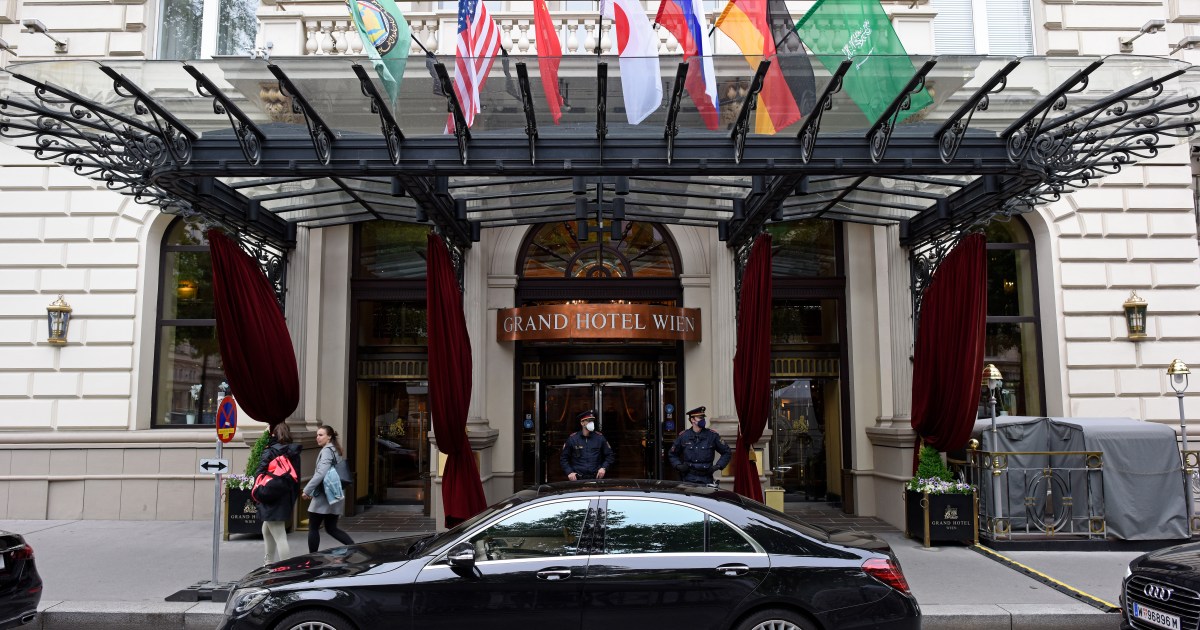Tehran -
US statements regarding Washington's readiness to hold direct talks with Tehran were accepted by Iranian politicians, who responded that they would not ignore that option, if the Vienna negotiations made progress that would allow the initiation of such a step.
A former member of the Iranian Parliament's National Security and Foreign Policy Committee, Mansour Haqqatpour, said that reaching an agreement on the Iranian nuclear program is close, and that direct negotiations between the Iranian and American sides will accelerate the pace of consensus in Vienna.
Although the Iranian government spokesman, Ali Bahadori Jahromi, denied that any negotiations were held between the Iranian and American negotiating teams in the Austrian capital, the Secretary of the Iranian Supreme National Security Council Ali Shamkhani revealed that communication with the American delegation has been through the exchange of indirect messages so far. .
In his tweet on Twitter, Shamkhani indicated that there is no need to develop channels of communication with Washington further, adding, "Other methods can only be tested - instead of this communication method - when a good agreement is at hand."
This was also preceded by the comment of Iranian Foreign Minister Amir Hossein Abdollahian, who said that his country would not ignore the option of negotiating with the United States if the Vienna negotiations reached a stage that would lead to the achievement of a tight agreement.
Iranian observers see the Iranian-American direct negotiations, which were held for the first time during the era of former Iranian President Hassan Rouhani, as a positive factor that proved his ability to overcome many obstacles that have been stuck since the victory of the Iranian revolution, which culminated in the signing of the nuclear agreement in 2015.
important development
The director of the Arab Center for Iranian Studies, Muhammad Salih Sedqian, considered the Iranian response to the American desire to conduct direct negotiations an “important development in the Iranian dialect,” adding that this desire needs preparations similar to what former US President Barack Obama did when the Iranian guide Ali Khamenei opened his intentions which paved the way for negotiations that reached the nuclear agreement.
While Seddian expressed his belief that he still believes in "the importance of this magical step to address the problems between the two sides," he quoted - in another tweet on Twitter - sources about "the possibility of holding a direct meeting between the foreign ministers of Iran and America if the Vienna negotiations reach an encouraging result, and he is alive." 2015 agreement.
Barriers to negotiation
On the other hand, Hadi Afqi, a researcher in strategic affairs, believes that there is a major impediment to holding direct negotiations with the US side, which is Washington's unilateral withdrawal from the nuclear agreement.
In his speech to Al-Jazeera Net, Afqi considered that the Iranian hint of the possibility of direct negotiation was conditional, because sitting at a direct negotiating table with Washington would mean Tehran's acceptance of the US sanctions it imposed after violating the nuclear agreement.
He added that another reason that prevented direct negotiations with America is the lack of trust between the two parties, stressing that Tehran may accept direct negotiations if its national interest requires it.
Afqi concluded that possible negotiations with the American delegation would be "at the level of experts" in the event the United States fully returns to the nuclear agreement and takes confidence-building steps;
Including lifting sanctions, releasing detained Iranian funds, and providing guarantees that its withdrawal from the agreement will not be repeated.
imminent agreement
For his part, the former member of the Iranian Parliament's National Security and Foreign Policy Committee, Mansour Haqqatpour, believes that reaching an agreement on the Iranian nuclear program is close, and that direct negotiations between his country and the United States will accelerate the pace of consensus in Vienna.
Referring to the direct negotiations between the foreign ministers of Iran and the United States that culminated in the signing of the 2015 nuclear agreement, Bohr confirmed in an interview with Al Jazeera Net, that there is no objection to direct negotiations with the Americans in Iran's policy.
He explained that his country had negotiated indirectly with the American side more than once through the European mediator, which Tehran considers an unfair party to the nuclear agreement, stressing that direct negotiations outside the scope of the six-party group will reduce distances and bring views closer, in preparation for Washington's return to the nuclear agreement. .
Haqiqatpour expected direct negotiations between Iran and the United States during the next stage, describing the chances of sitting at the negotiating table as being high.

